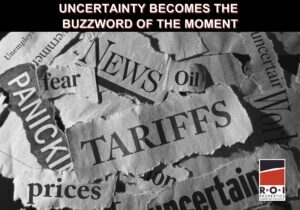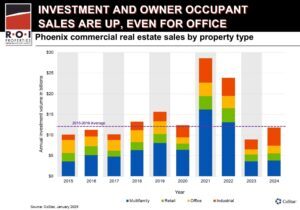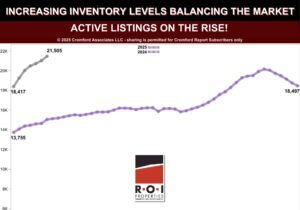By Beth Jo Zeitzer and Josephine Giordano for Arizona Attorney
Scope Limitation Definition and Overview
Experts are often faced with challenges as a result of scope limitations imposed during financial investigations, court-appointed receiverships and special master and compliance-monitoring appointments.
For instance, in the world of financial audits, a scope limitation is defined as a restriction on the applicability of an auditor’s report that may arise from the inability to obtain sufficient appropriate evidence about a component in the financial statements. When all the audit procedures that are considered necessary are not performed—either by circumstances, engagement or client limitation—the audit is limited in scope. These limitations are also applicable to experts and could materially affect the expert’s conclusions. Expert reports will typically include the assumptions and limiting conditions applicable to their role and assignment.
Scope limitations imposed on a financial or other expert are typically the result of cost containment and/or time restrictions and may be imposed by the court, client or parties. If an expert is at liberty to provide input, a risk-based approach helps to identify the best plan to assess the areas where limitations can be adapted.
But scope limitations may bear the risk of inconclusive results or a material impact on conclusions. Depending on results, the scope of services may need to be modified or expanded at a later date. By spending the time on the front end to carefully establish the scope of an analysis/investigation or a court appointment, challenges may be minimized down the road. The conundrum is that by establishing too broad of a scope, time and money may be wasted. By establishing too
many limitations, the expert might have inconclusive results or, in the case of a receivership, legal counsel may have to go back to the court to expand the order. Careful consideration is necessary on a case-by-case basis.
Financial Fraud Investigations
An expert on a financial fraud investigation may suggest limiting the scope of review to a specific time frame or certain suspect transactions, if such activity has been identified prior to the hiring of the expert.
However, after the expert has gathered relevant information and has performed a limited-scope analysis, preliminary conclusions/observations can be discussed with the client and/or legal counsel, including the cost benefit of expanding the scope of review.
A risk-based approach helps identify areas where limitations can be adapted.
A financial fraud investigation is a process of peeling back the onion: The more complex the scheme, the more peeling is required. An expert should apply reasonable professional judgment in communicating the cost benefit and reassessing the scope of the analysis to prevent the engagement from spiraling out of control.
Receiverships
With respect to court appointments that are stipulated, a well-drafted receivership order should balance the specific duties of a receiver with certain broad authority to address unforeseen circumstances. Delineating the limitations (in addition to the authority) in the receiver’s role can alleviate confusion and keep costs contained by carving out specific duties.
For example, a receivership order related to the operations of a health care facility may exclude patient care responsibilities. In a commercial real estate receivership, the receivership order may provide for rent collection, property management and preparation of financial information, but may exclude improvements and repairs above a specific dollar limitation, or may specifically preclude the receiver’s ability to borrow to improve/maintain the property.
Delineating the limitations in the receiver’s role can alleviate confusion and keep costs contained.
Special Masters
A court-appointed special master may be tasked with analyzing specific accounting or financial documents/information. For example, partner capital accounts may be in question, and the scope may be initially limited to reviewing certain transactions and supporting documentation to support each partner’s capital account activity. Depending on findings observed and reported to the court, the initial scope may be expanded for review to include, for instance, the potential personal nature of certain expense activity that may not have been properly classified in the books and records.
Real Estate Special Commissioners/Masters
These types of appointments are a useful dispute resolution tool in a wide range of probate, partition, jointly owned property and family law matters. By definition, a special commissioner is a licensed real estate agent and/or broker who is appointed by the court or stipulated by the parties to initiate and complete the sale of property, including residential, commercial, land or special-use assets. The scope of the assignment should provide for how to value the property, presentation of offers and resolution at potential impasse, access, property presentation standards, and so forth.
Compliance Monitors
Finally, a court-appointed compliance monitor may be specifically tasked with monitoring corrective action, particularly as a result of regulatory compliance deficiencies. A financial expert/consultant is often underutilized, particularly post-resolution or in conjunction with the potential settlement of a matter. By performing case-by-case-specific hybrid monitoring services based on the continued concerns of the parties, the scope of services could be limited to specific oversight procedures only and results reported periodically to interested parties.
For example, a lender agrees to a forbearance period as a result of an expert/consultant’s report that addressed concerns/deficiencies related to operational and financial performance. As part of the forbearance agreement, the borrower agrees to independent monitoring/oversight by the expert/consultant, who would issue periodic reports to the lender. The scope of the monitoring/oversight function would be identified. For instance, financial results could be provided by the borrower on a monthly basis for specific monitoring of expenses or analysis of projected income to actual results. Depending on the specific concerns or deficiencies addressed, the monitoring might be limited to operational, financial or compliance issues only.
Of course, each case differs and the needs of each case vary. The expert/consultant can assist in outlining a going-forward plan based on a risk-based approach that works within certain budget constraints. The monitoring/oversight function is a very powerful tool and can be as broad or as detailed as needed. The compliance monitor’s role is typically limited so that the compliance monitor is not controlling the borrower’s operational or financial decisions.
Scope Limitations Summary
Enlisting the services of an expert or court appointee with careful consideration of their specific functions/scope of engagement can assist in providing better resolutions for legal counsel and their clients, whether as an alternative to litigation or to enhance success in litigation. Optimal results and the minimalization of challenges will ultimately be driven by the delineated scope of duties or limitations of the engagement and should be thoughtfully considered on the frontend and periodically reviewed throughout the assignment.
The expert/consultant can assist in a going-forward plan based on risk that works within budget constraints.
BETH JO ZEITZER is the Owner and Designated Broker of R.O.I. Properties, and the owner of R.O.I. Asset Management Solutions. R.O.I. Properties is a full-service real estate brokerage firm which works with business owners, investors and property owners, regarding the management, marketing and sale of Commercial, Residential and Land assets. In addition to serving as Real Estate Broker, through R.O.I. AMS, Beth Jo is appointed by numerous courts as Receiver, Real Estate Special Commissioner, Special Master, Bankruptcy Trustee and Expert Witness in real estate matters and legal proceedings. Beth Jo is an attorney by training, and former Corporate Counsel and Director of Commercial Properties for Del Webb Corporation. Beth Jo can be reached at [email protected] or (602) 319-1326.
JOSEPHINE GIORDANO is Director of Receivership and Litigation Support Services with R.O.I. Properties & R.O.I. Asset Management Solutions. Ms. Giordano has extensive experience as a financial professional, with a diversified background that encompasses internal audit, banking, tax, business valuation, fraud investigation and forensic accounting, bankruptcy and restructuring, court-appointed Receiverships, court-appointed Special Master and Compliance Monitor, and other litigation support services. Ms. Giordano is a Certified Public Accountant (CPA), is Accredited in Business Valuation (ABV), Certified Fraud Examiner (CFE), is Certified in Financial Forensics (CFF), Certified Business Appraiser (CBA), Accredited Senior Appraiser (ASA), Certified in Distressed Business Valuation (CDBV), a Certified Insolvency & Restructuring Advisor (CIRA), and a Certified Internal Controls Auditor (CICA). Ms. Giordano can be reached at [email protected] or (602) 237-5607.
Learn More About Our Full-Service Brokerage Firm
Contact Us
Contact R.O.I. Properties to Learn More From Real Estate Experts
Whether you need to buy or sell property, or just want to stay informed, R.O.I. Properties is at your service. To put an expert advocate on your side, contact us at [email protected] or 602-319-1326.










